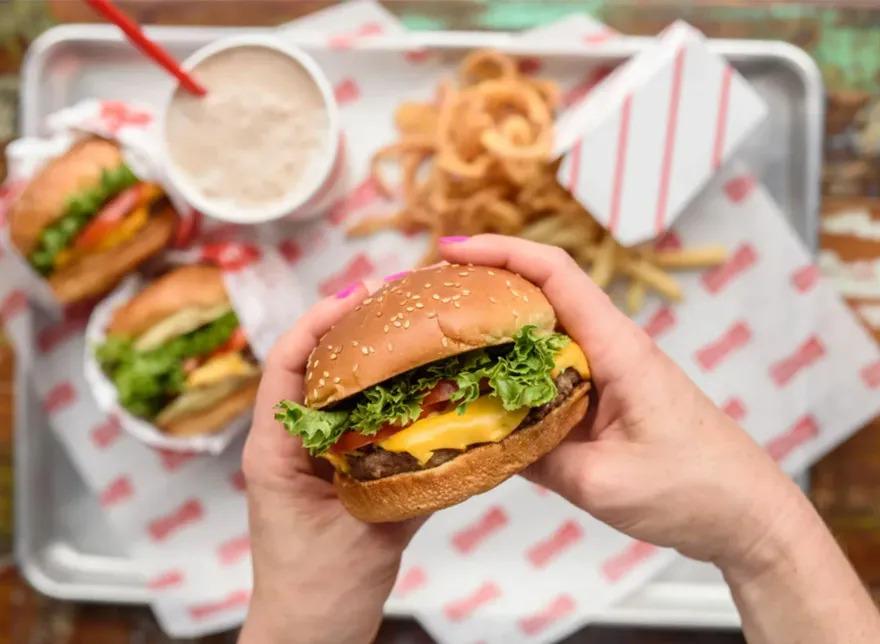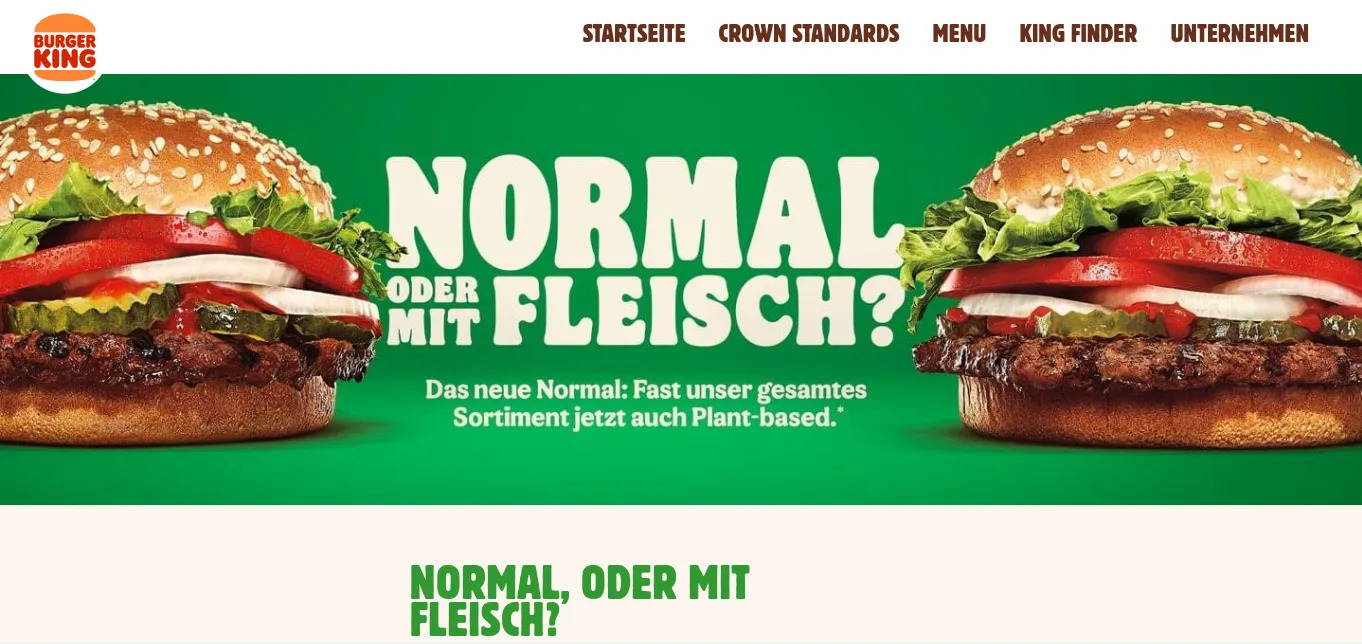Late last week, fast food giant Taco Bell announced that it’s testing a new Crispy Melt Taco made with plant-based ground beef. The vegetarian taco will be temporarily available at the chain’s Birmingham, Alabama, location and uses an unbranded soy/pea blend, setting the new menu item apart from the restaurant’s much-teased, yet-unreleased Beyond Meat partnership expected later this year. This Crispy Melt Taco launch echoes a similar plant-based pilot Taco Bell ran in April 2021, its “Cravetarian Taco” featuring a meat substitute made from peas and chickpeas. What makes 2022’s Crispy Melt unique, though, is not how it’s made, but how it’s presented when ordered: by default.
Taco Bell is choosing to provide the plant-based protein as the default, and animal protein on request. “Vegetarians and flexitarians alike will rejoice at the first option, which is a brand-new, boldly seasoned plant-based protein.” The company continues, “Fans can also opt for the taco to be made with real seasoned beef.” The plant-based default is plenty exciting on its own, but the cherry on top is the lack of upcharge: “Regardless of protein, the Crispy Melt Taco is available for just $2.49.”
Fast food chains have dabbled in plant-based foods over the past five years (e.g., KFC’s Beyond Chicken, White Castle’s Impossible sliders), but Taco Bell’s offering is the industry’s first deliberate veg default on American soil. It’s not the first US-based fast food company to go the default route, though. Burger King has been playing with the power of nudges for a few years now.

In 2019, all Swedish Burger King locations offered a “50/50 menu” with standard Burger King menu items. The catch? Customers had a 50/50 chance of being served either animal-based meat or plant-based meat. The stunt was designed to prove that modern plant-based meats are so convincing, customers can’t tell the difference. COVID-19 temporarily put Burger King’s plant game on hold, but since 2021 the restaurant chain has launched five pop-ups across Europe with different veganized versions of classic Burger King foods. Cologne, Germany’s plant-based pop-up lasted only a week, but Madrid’s and London’s Burger Kings both went plant-based for a month. Madrid’s location offered a smaller menu of just five items, but the company has been steadily working to expand its plant-based menu, which now includes veganized condiments and 14 plant-based menu items as of June 2022. The culmination of all these pop-ups rolled out last month in Vienna: a default veg campaign in which staff ask customers, “Normal or with meat?”
Continuing the company’s fruitful partnership with The Vegetarian Butcher, Burger King Austria was bold enough to openly default to plant-based sandwiches. In asking “Normal oder mit fleisch?”, Burger King subverts customer expectations, flipping the unwritten script of default beef. Since the identity of the Burger King brand is staked on its burgers, giving beef patties a backseat is truly revolutionary.

It’s paying off. Originally the “Normal or with meat?” campaign was intended for Vienna alone, but the debut was so successful that it has since expanded to all Austrian Burger King locations. (The only American analog to this level of success is Panda Express’s plant-based orange chicken. After selling 1,300 pounds of Beyond orange chicken at its launch day location, Panda Express decided to expand access to an additional 70 locations.) While a nationwide expansion of Taco Bell’s Crispy Melt Taco is still up in the air, the fast food industry is undeniably excited about plant-based foods, and some big names are willing to venture into defaults.
Burger King has committed to going 50-percent plant-based in the UK by 2030. Starbucks UK dropped its plant milk surcharge at 1,000 locations last year. Domino’s celebrated Veganuary with meatless pepperoni. Companies have witnessed the plant-based movement just like the rest of us, and they are responding in kind. This is worth celebrating! However, Taco Bell’s and Burger King’s launches deserve special recognition for their dauntlessness in harnessing the power of defaults. With two of the biggest fast food brands going DefaultVeg, more will be sure to follow. Stay tuned, and eat up.
Latest News
See All NewsThis Simple Shift is Transforming Our Food Systems
Learn more about the science of human behavior and the power of nudges happening quietly in many food service settings–from university campuses to hospitals and coffee shops worldwide.
Nudge Online Training Sessions
Join the Better Food Foundation for a hands-on workshop that puts powerful climate solutions into your hands. You’ll learn to implement the top five evidence-based behavioral science strategies that reduce carbon, land, and water footprints across diverse institutional settings.
Simulating A Thriving Food System For All
Join Climate Interactive, Plant Based Treaty, and the Better Food Foundation to explore how plant-based diets can combat extreme heat, protect biodiversity, and secure our future.